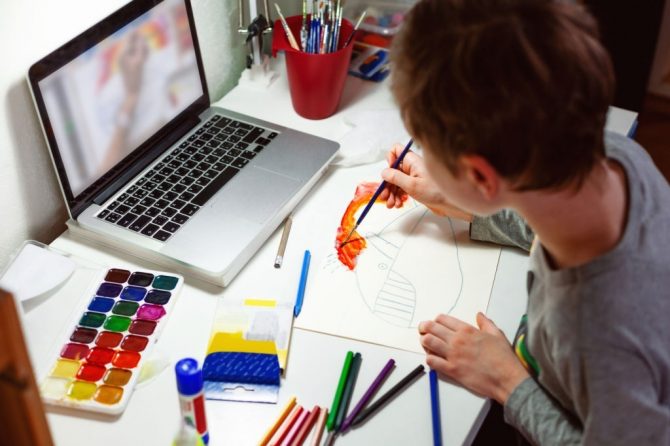Water is a very important part of our environment. It…

Essential Life Skills For Kids To Succeed
In this wide world, it is often simple to assume that people grow up with a certain set of core understandings…but that couldn’t be further from the truth. Assuming that we all have a similar set of life skills that we apply on the daily is rash. Parents must model appropriate behavior and self-talk for their kids to pick up on how their parents learn. Then they can use those skills to mold and experiment with their own view of life. Life skills for kids are an essential part of development.
What Are Life Skills?
Life Skills are abilities that are learned in order to support one in being a productive human being capable of taking their place in society. Learning how to learn is an essential skill that parents can help to develop by modeling, self-narration, and conversation.
Which Skills Are Essential for Kids?
Focus
The ability to pay close attention to a task at hand is focus. This behavior must be modeled for kids amidst structure and clear rules. Kids thrive on structure and routine, so don’t be afraid to set those boundaries. Give them ample opportunity to play by themselves with things like puzzles or coloring to learn to focus on their own without reminders.
Self-Control
Knowing appropriate behavior and speech for any given situation and conducting yourself accordingly is self-control. This is another behavior that should be discussed and modeled by the adult, being sure to discuss clear expectations of what their behavior should look like in specific situations.
Making Connections (Inference)
Opening the mind up to see patterns and less-than-obvious connections is an amazing skill to guide in your child. Something as simple as knowing which shoes to wear for an outing based on the location and the weather proves they are making connections. But digging deeper and making emotional connections based on body language and social cues expands this area. Talking aloud and wondering aloud are great ways to foster this skill.
Perspective
This is the old “seeing the world from another person’s shoes” adage. Kids must learn to think about the socio-emotional context of events and situations, and learn to respect and appreciate others for both their uniqueness and their differences. Parents can model this by “thinking aloud,” or talking about what he observes so the child can see the subtle social cues as well. For example, “I noticed Grandpa was frowning as he worked in the garden today. How do you think he was feeling? Why do you think he felt that way?” Then move a step beyond and see how you can be a part of the solution if there is a problem. Bring each situation full-circle if possible.
Resilience
It’s that never-give-up American attitude that keeps us going. Taking on challenges, learning from failure, and carrying on despite shows a positive attitude and a willingness to learn in this world. Encouraging kids to take risks but with the encouragement of a safe space or you nearby is key. Discuss what makes them feel safe and under what condition they might try again. Talk is key. Acknowledge difficulty as well – “Gosh, that was hard. I’m glad you tried!” It makes all the difference.
Communication
Reading social cues and adjusting their behavior accordingly is called “code switching.” Often we alter our behavior and speech patterns given the situation we are in. It’s as simple as speaking slower and choosing specific topics when visiting a Nursing Home as opposed to being high energy and screaming to encourage teammates at a baseball game. Learning what communication is most effective in each situation is key.
Critical Thinking
Most people wouldn’t associate open-ended play with critical thinking, but that is exactly what kids need. Putting themselves into role-play in real world situations and letting them make mistakes and learn in play builds incredible confidence. It also helps to let them experience as much of the world as possible so they can work through those experiences and apply them to their own life.
Curiosity
Say yes. It’s often as simple as that. Let them make the mess. Let them climb the tree. Let them prove their hypothesis. The clean up is worth it in the end. The other side of this is to NOT answer all of their questions. A good “Hmmm, I don’t know, but let’s find out!” goes miles with kids. It shows that parents don’t know everything but are willing to help them find the truth. Encourage them to get into things, whether in nature, artistically, or exploring the world.
Bottom line is to continue to model and be the example for your child. They see what you do and how you react, so it’s up to you to set the guidelines, the expectations, and the limits of exploration. Let them go wild with curiosity, allowing them to experience what life has to offer and talking them through each situation for meaning and reason.


